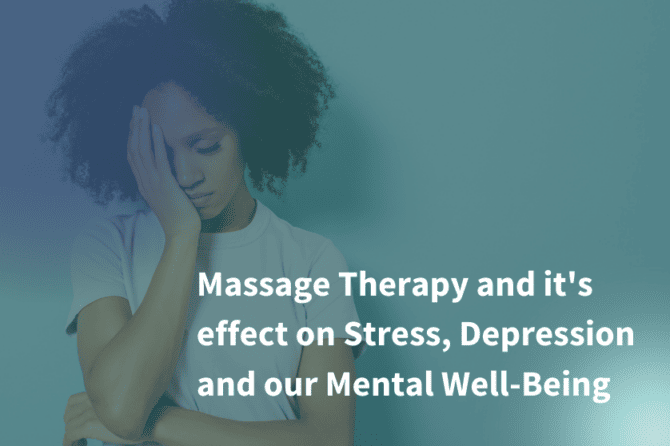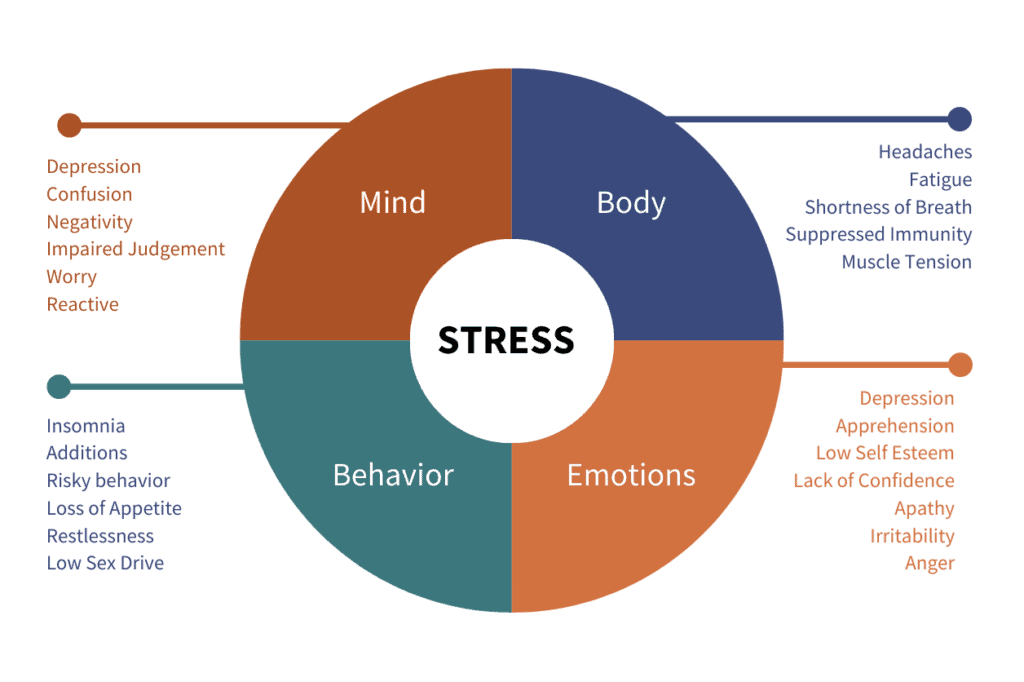
Massage Therapy and it’s effect on Stress, Depression and our Mental Well-Being
Stress is often defined as a feeling of having little or no control over your environment and the situations in it. Jobs, money, family, illness, death all contribute to these feelings and those experiencing these stressors start to experience symptoms such as depression, anxiety, heart conditions, high blood pressure, obesity, lowered immune functioning, addiction and pain.
Stress is a very individual experience and the degree of a stress response is dependent on the individuals resiliency, vulnerability, support systems, general health and the degree to which the condition is managed.

What occurs during the stress response
Our acute stress response is an essential process to keep us from danger either real or perceived (thoughts, worries, etc.) and when the stressor leaves the body returns to a normal state of functioning. This process involves the brain, spinal cord, peripheral nerves, hormones, neurotransmitters and then a physical response which is known as “fight/flight”.
Where the dysfunction occurs is when the stressor or stressors are not managed or resolved. This situation keeps releasing the chemical known as cortisol which perpetuates the acute stress response at a lower level and this cycle starts to change the bodies adaptation abilities and leads to numerous symptoms.
With chronic stress our muscles tense which results in a lack of blood and oxygen into the tissues, this results in the activation of the pain receptors which further tighten up the muscles. This continues muscle tightness, lack of blood, and pain leads to more stress both physically and mentally and the cycle continues from there.

Stress and Body Awareness
Stress, depression and other mental health conditions keep us in our head and slowly causes a departure from bodily awareness. This awareness is called interopception and
is considered the 8th sense after seeing, smelling, hearing, touching, tasting and equilibrioception (sense of balance), proprioception (the bodies ability to sense itself in space through movement, action, and location).
When this happens we lose touch with how we are feeling, what our bodies need and an eventual numbing of the body . During the chronic stress response our “feel good” neurotransmitters such as dopamine, oxytocin, serotonin and endorphins are diminished and we are less able to manage our pain which can eventually lead to depression, more stress, etc.
As stated by George Fink in SciTech Connect,
“Stress” has been dubbed the “health Epidemic of the 21st Century” by the World Health Organization.
It is estimated to cost North American businesses billions of dollars a year due to the devastating emotional and physical health effects of longer terms stress. It is determined through numerous studies that job stress is the leading cause and this is continuing to escalate since the Pandemic.

How Does Massage Help?
Relaxation Massage is probably the most familiar of all massage therapy approaches. Massage relaxes the tight muscles, and encourages localized blood flow which diminishes pain. Touch also increases the release of the “feel good” hormones, which leads to a greater sense of well being, reduced pain and a relaxation response in the brain.
Therapists trained in helping you manage your stress response will also spend time getting you in touch with your physical body again by increasing your interoception (internal awareness) and increasing the neurotransmitters that will maintain the experience you get with a massage.
With the ongoing stress in your life a massage treatment is not a one time solution. We encourage our clients with stress, depression, anxiety and pain to make massage therapy a part of your health management approach.

.
Leave a reply
Leave a reply